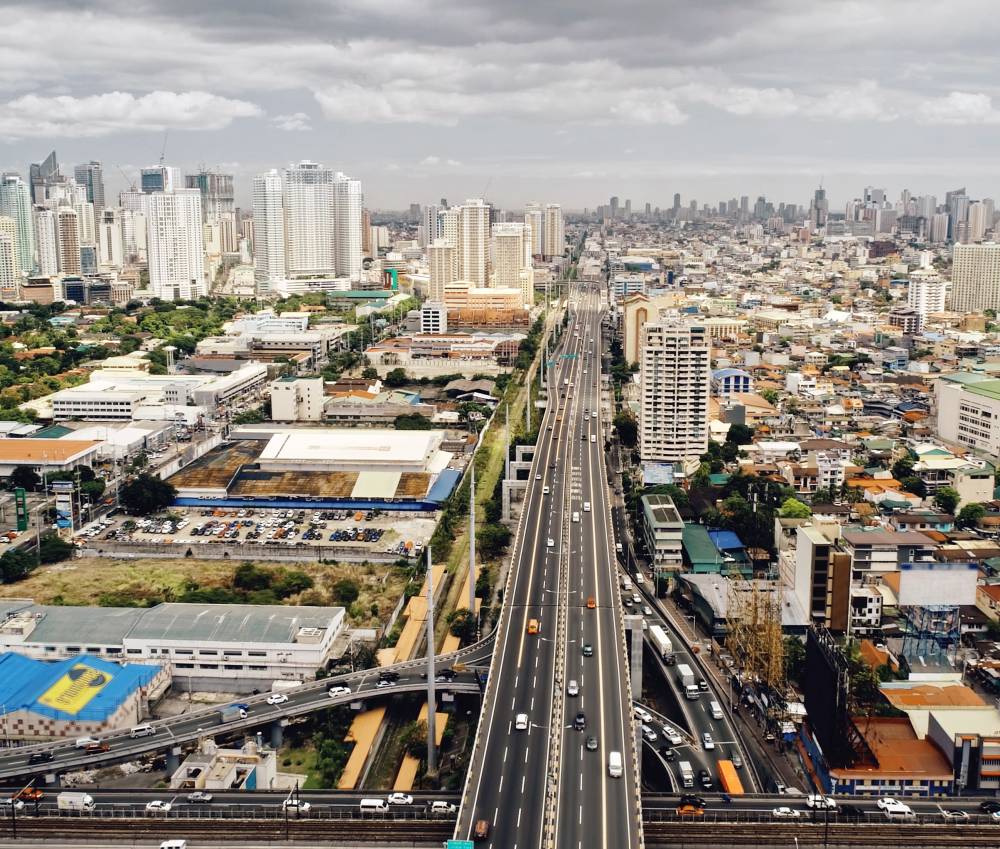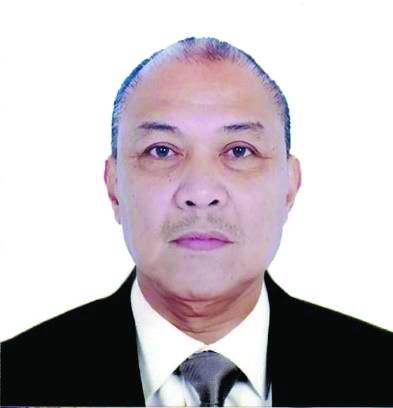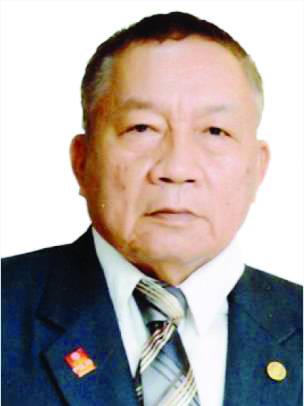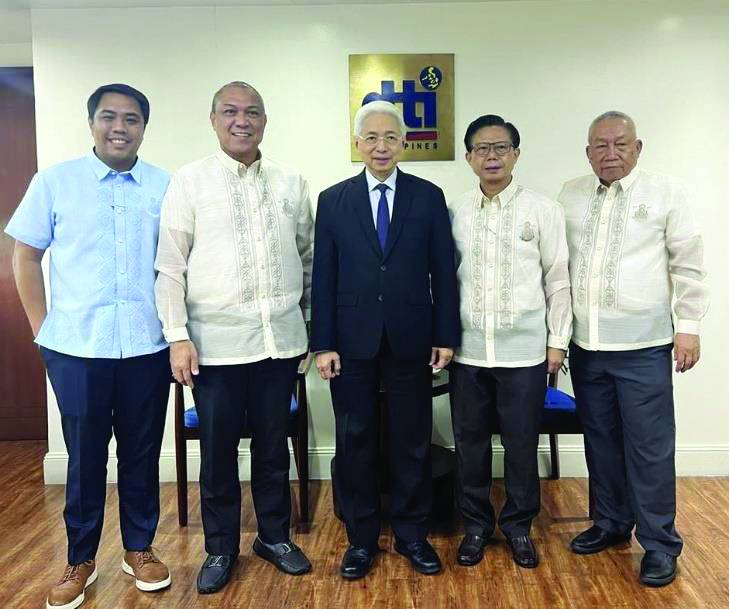Setting the pace in digitalization


Traffic highway at modern skyscrapers aerial. Epic cityscape with streets along road. Block buildings and cottages at cloudy summer day. Downtown local transportation at Manila city, Philippine.

PCAB_PDI_final 2.

PCAB_PDI_final 3.

PCAB_PDI_final 4.

PCAB_PDI_final1.

PCAB_PDI_final 5.
Without much fanfare, the Philippine Contractors Accreditation Board (PCAB) has successfully pursued the government’s goal of digitalization to improve and enhance the services it provides the public, while bigger and more high-profile agencies are still wrestling with the intricacies of new technologies.
Secretary Alfredo E. Pascual of the Department of Trade and Industry (DTI) underscored in his message to the board, as it closed another successful and eventful year, that the PCAB had a “stellar year,” after finishing 2022 with “unprecedented achievements, ushering in the next phase of progress and expansion in the local construction industry.
Pascual said, “With its commitment to develop and implement programs to create a globally competitive construction industry, PCAB embraces and fosters digitalized technology to its advantage.”
The trade secretary added, “As a result, PCAB is the only government agency that has achieved end-to-end licensing processing, working closely with the Department of Trade and Industry to accomplish its promise to deliver faster and more efficient service through a more innovative approach. It is indeed a testament to your commitment to the values of tatag at tapat (Building with Integrity).”Pascual stressed that the construction industry would be crucial in the Philippines’ efforts to overcome the lingering challenges of the coronavirus disease 2019 (COVID-2019) pandemic.
“With the implementation of policies and initiatives aimed at boosting investments, the government is striving to create a favorable economic environment that will enable businesses to thrive. Central to the achievement of continuous economic growth is the construction sector. As envisioned in the Philippine Construction Roadmap 2020-2030, the country is gaining P130 trillion worth of construction projects. With these exciting possibilities, the construction industry will witness growth in various areas of infrastructure development,” the DTI official pointed out.
Pascual added that DTI hoped to see a significant transformation of the industry by creating new benchmarks in excellence and quality, and by building revolutionary infrastructures within the country.
He urged PCAB to join the government in building more and building better.
Dr. Pericles P. Dakay, PCAB chair, achieving said full automation in the board’s business processing systems enabled the PCAB to have a banner year in 2022. The highlight of the successful year was the ISO certification awarded to the board.
Dakay said it was “a testament to all the hard work and the firm resolve to always go over and above what is expected of us.”
He reported that, in 2022, PCAB serviced more than 50,000 transactions and surpassed the P350 million projected target income for the year. For this feat, he thanked DTI Undersecretary Ireneo V. Vizmonte and his team, as well as industry partners and associations, particularly the Philippine Constructors Association, Inc. (PCA) and National Constructors Association of the Philippines, Inc. (NACAP).
Dakay assured those that had supported the board that the agency would not rest on its laurels. It realized, he said, that there was more work to be done.
“In the next few years, we shall aim to provide our clients a better feedback platform in order to serve them better. We will also strive to gather data and statistics on contractors, industry market share, and the value of construction work being done in the country. I remain optimistic that . . . these will be achieved,” as he expressed confidence that PCAB would be able to help restore, upgrade, and raise the construction sector’s businesses.
PCAB board member Erni G. Baggao, also highlighted the board’s accomplishment as the “only government agency in the country, which had fully digitized its operations.”
This was accomplished, he said, because all of PCAB’s stakeholders were on the same page. “Through solid team work, leadership and focus, PCAB was able to expand services, expedite processes, and accelerate operations, resulting in a record number of processed license applications and, thereby, more Filipinos served.”
PCAB is now fully capable of performing full digital licensing activities and continues to look for ways to improve its performance.
In support of the Construction Industry Roadmap 2020-2030, PCAB is fast -tracking its processes, improving its systems, and enhancing its operations. In 2022, PCAB achieved a record of 51,517 applications, up by 42 percent from 36,190 in the previous year. Along with this, a significant jump in income was also recorded with P390,959,197.28 in 2022, versus P322,866,365.27 the previous year, representing a 21 percent increase.
All these were made possible after full digitalization and enhancement of online processing. PCAB also added new features to the online system to include the Pakyaw Contractors License Application, which aims to provide for a facility to legitimize operations of small-scale contractors. This inclusive feature provides contractors greater opportunities for growth by legitimizing their businesses.
PCAB’s mandate has also been strengthened by the passage of Republic Act No. 11711, or An Act Further Amending RA 4566, as amended, otherwise known as the Contractor’s License Law (Republic Act No. 4566).
Also a major boost to the further growth of the PCAB and the expansion of the Philippine construction agency
is the plan by the Department of Human Settlements and Urban Development (DHSUD) to reduce the housing backlog in the country, estimated at 6.5 million units and expected to increase to 10.9 million by the end of 2028.
Baggao thanked the agency’s partners and allied organizations for helping
PCAB become a a major game changer in the construction sector. “Rest assured there will be more enhancement programs to come in the future,” he said.
PCAB officials gave the assurance that the board would continue to serve the needs of the construction industry to make it an even stronger pillar of the country’s economic growth.
















